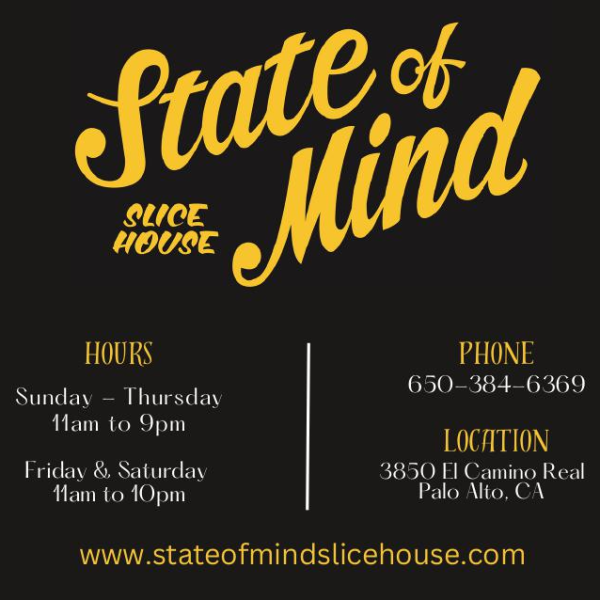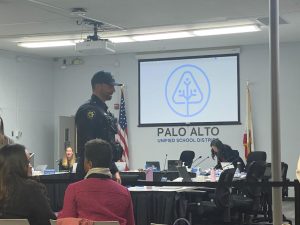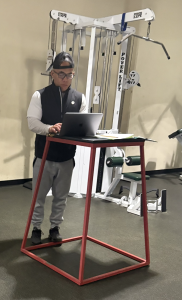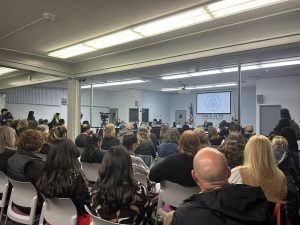Social distancing causes mental health decline
April 22, 2020
As the COVID-19 pandemic hit the United States, the country entered lockdown and normal life was put on pause. People dropped their regular work or school routines in favor of staying isolated at home, but have found themselves lost as to what to do or how to continue.
According to Wellness Outreach worker Whitney Aquino on behalf of the Palo Alto High School Wellness Center team, dropping all social contact in favor of staying inside can dredge up emotions such as frustration, loneliness and anger for many people, which can manifest itself as anxiety and depression.
“Everyone reacts differently,” Aquino said. “A lot of folks are also grieving both personal losses and others, like loss of normalcy, a job, milestones like prom or a wedding. Some folks are experiencing really difficult circumstances.”
The lockdown has affected children and adults alike. To mitigate the effects of social isolation on students who are forced to stay home from school, Aquino worked with Wellness Outreach workers at Gunn to compile resources for students. Paly students can view Aquino’s Heart, Mind & Soul posts shared daily on Schoology for additional advice and resources; a compilation can be found here.
“It’s tough for high schoolers in that, during this time of life, being social and connected is really important to them,” Aquino said.
In order to avoid mental health decline, Aquino said having a solid routine to create structure and that consistency is key. In addition, she suggests keeping a positive attitude and practicing appreciation and gratitude as well as limiting news intake.
“Being informed is great,” Aquino said. “Checking every news notification that comes on your phone can be overwhelming.”
During these times, it is still important to stay physically healthy through proper exercise, according to Aquino.
“Making the effort to get outside each day, even if it’s just a walk around the block, can be helpful to both get exercise and to build into your daily routine and create a break for yourself,” Aquino said.
Aquino also advises having structured mealtimes and avoiding excessive snacking in order to stay healthy and boost immune systems.
“If we’re eating a lot less, since we’re generally not doing as much as before, we might not feel as hungry, so having mealtimes helps,” Aquino said. “When we eat better, we feel better, and can boost our immune system too.”
Maintaining a healthy sleep schedule is also key to boosting both physical and mental health, according to Aquino.
A Palo Alto psychiatry specialist who wishes to remain anonymous said she noticed an increase in anxiety-related health matters and fear regarding when things will go back to normal.
“Almost all doctors in most specialties have moved to telemedicine whenever possible to minimize the exposures of both their patients and to the providers themselves too,” the psychiatrist said. “Telemedicine is working out fairly well for therapy visits or general medical questions or appointments with internal medicine.”
The psychiatrist said medical in-person appointments are now only for acute situations that necessitate in-person workups.
Despite all, Aquino said that there are still some positive aspects of social isolation.
“A lot of people are finding that they enjoy the opportunity to slow down, stop and smell the roses so to speak,” Aquino said.
In addition, Aquino said that facing the COVID-19 crisis together has brought people closer.
“We’re all experiencing this together, the whole world, and that’s something that’s connecting us,” Aquino said. “We are finding ways to be creative and resilient. Spending time with family members. Communities are finding ways to remain connected and support those in need.”
In order to support students, that their team has released a Wellness Virtual Support Request Form for students to request to speak to a Wellness and Counseling Team Member, which is checked regularly during school hours, according to Aquino. The counselors are also available by email and through Schoology during regularly scheduled school days.
“We’re really happy that we can offer students a place that they can sign up to speak with one of our Wellness counseling staff,” Aquino said.
Aquino said that the Wellness team encourages people struggling to speak up during this crisis and to reach out to people in their support network or to use the Wellness form or crisis lines.
“It is sometimes hard to take that first step,” Aquino said. “But it can really help them to feel less alone, and there are others that share similar experiences.”
If you or someone you know is having a physical or mental health emergency, please use one of the following crisis resources for immediate help:
Call 911 and request a C.I.T. (crisis intervention team) trained officer to assist you.
24/7 Teen Crisis Hotline: 1-888-247-7717
Crisis Text Line: text “home” to 741-741
National Suicide Prevention Hotline: 1-800-273-8255
Bill Wilson Youth Hotline (24-hour Suicide & Crisis Line): 408-850-6125
Trevor Lifeline LGBTQQ+ Crisis Support: 1-866-488-7386
SCC Suicide Crisis Hotline: 1-855-278-4204
Santa Clara County Residents:
Uplift Family Services Mobile Crisis Line: (408)-379-9085
Alum Rock Counseling Center: (408) 294-0579
San Mateo County Residents:
StarVista (650) 579-0350 for 24/7 phone crisis consultation for next steps.








